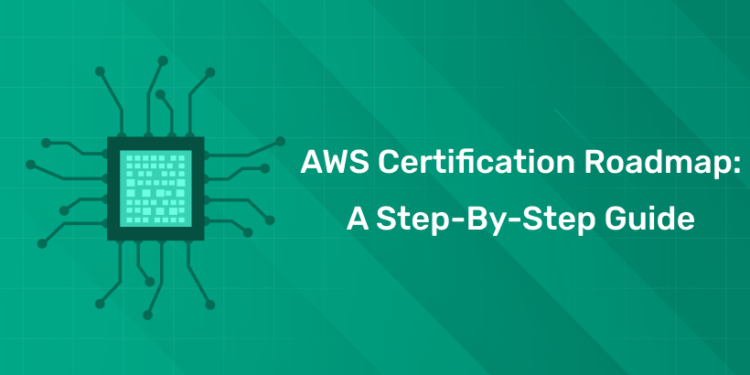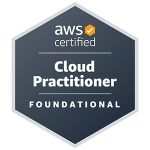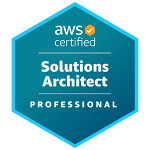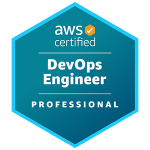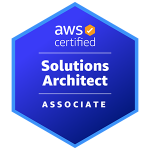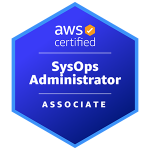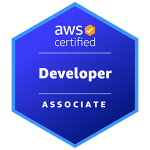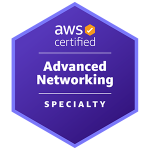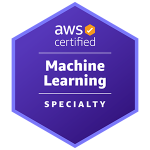Table of Contents
AWS has been the buzzword for quite a while and will continue to do so. Therefore, AWS certification courses have their own validity or place in the world of certificates. Learn more about AWS certification, its necessity, types, and benefits, along with a comprehensive step-by-step guide to attain the certificate course along with a roadmap to your success.
Introduction: What is AWS?
Amazon Web Services (AWS) is a cloud computing platform that offers a lot of services, including but not limited to,
- Computing
- Storage
- Content Delivery
- Database
- Networking
- Analytics
- Machine Learning
- Security
An exhaustive list of services invites a wide range of companies who use AWS for their day-to-day usage. This, in turn, provides job opportunities for anyone who is able to tame the intense and vast sea of cloud computing. Of course, this is just an exaggeration, as no one can master it due to the constant updates and adaptations of AWS (just like the sea!). An AWS certification proves your capability and skill to comprehend and work on the AWS systems. AWS is at the top of the market (or rather, in the clouds!) and is considered to be a valuable asset to employees all around the globe.
Preparing for AWS Solutions Architect? Master the course now!
AWS Certification: Is it Worth It?
AWS certifications showcase you as a skilled and competent individual who possesses the zeal to comprehend complex systems. It establishes you as a specialist in cloud computing systems. IT professionals prefer AWS certifications as they are valuable, especially when considering the fact that AWS is the leader in the cloud market. They consider this an opportunity to get a hands-on approach to the cloud computing process.
AWS Solutions Architect Associate Course
Learn AWS from Industry Leaders: Build Expertise and Accelerate Your Career!
Explore ProgramBenefits of AWS Certification
-
Consistency gives way to growth.
Certifications from AWS can be fruitful when it comes to your journey or roadmap to success through the cloud computing field. Over the course of multiple financial years, AWS has maintained its lead and is currently having around 32% of the market [1]. This is due to a greater number of companies uploading their data over the course of years.
-
Efforts do matter.
The certifications require a lot of work, study, practice, and dedication. Upon completion of a certification, you prove how determined you are, along with the fact that you do not shy away from complex concepts, and thereby, earn trust. Certain tiers of learning will earn you digital badges and allow exclusive access to AWS events and circles.
-
Improved Salaries
A further (and attractive) benefit are the drastic surges in salaries of an AWS certified cloud specialist. According to a survey by Jefferson Frank [2], AWS certifications increased the salaries of 73 percent of AWS professionals by up to 27 percent after certification.
Types of AWS Certifications
There are many AWS certifications, including six core and five speciality certifications, spanning various experience levels. You have four levels to choose from: Foundational, Professional, Associate, and Speciality. Make sure to research these fields to understand which ones align with your goals and growth. The following list shows a few of those options:
- Foundational: Cloud Practitioner
- Professional: Solutions Architect, Developer, SysOps Administrator
- Associate: Solutions Architect, DevOps Engineer
- Speciality: Advanced Networking, Data Analytics, Machine Learning
Which AWS Certification should I get?
Here are 10 certifications and their responsibilities and qualifications. Research thoroughly and select the one that aligns with your expertise and experience.
| Certification | Intended for |
| AWS Certified Cloud Practitioner | Aspirants who want to gain a foundational and high-level understanding of AWS Cloud services and terminologies. A good start for individuals with no prior experience. |
| AWS Certified Solutions Architect—Associate | Aspirants who have a minimum of 1 year hands-on experience on designing cloud services that use AWS services. Focuses on the design of cost and performance optimized solutions. |
| AWS Certified Developer—Associate | Aspirants who have one or more years of prior hands-on experience in developing and maintaining applications by using AWS services. An ideal starting point for individuals in IT or cloud developer job roles. |
| AWS Certified SysOps Administrator—Associate | Aspirants having one year of experience with deployment, management, networking, and security on AWS. An ideal starting point for individuals in IT or cloud operations job roles. |
| AWS Certified Solutions Architect—Professional | Aspirants with two or more years of hands-on experience designing and deploying cloud architecture on AWS. |
| AWS Certified DevOps Engineer—Professional | Aspirants with two or more years of experience provisioning, operating and managing AWS environments. |
| AWS Certified Advanced Networking—Specialty | Aspirants who perform complex networking tasks with five years of hands-on experience architecting and implementing solutions. |
| AWS Data Analytics – Speciality | Aspirants with 5 years of experience with common data analytics technologies and 2 year of hands-on experience and expertise working with AWS services to design, build, secure, and maintain analytics solutions. |
| AWS Certified Machine Learning—Specialty | Aspirants who perform a development or data science role and have more than one year of experience developing, architecting, or running machine learning/deep learning workloads in the AWS Cloud. |
AWS Solutions Architect Associate Course
Learn AWS from Industry Leaders: Build Expertise and Accelerate Your Career!
Explore ProgramWhat jobs can I get with AWS certification?
More advanced and complex certifications would result in a high-end position or role, with the salaries being on par. Less complex and basic certifications cover basic concepts and information leading to mostly entry-level positions that do not require much technical expertise.
- AWS Certified Cloud Practitioner- Cloud Support Associate, Cloud Sales/ Marketing Associate, AWS Cloud Consultant, Cloud Operations Technician, IT Support Specialist, Systems Administrator
- AWS Certified Solutions Architect (Associate)- Cloud Consultant, AWS Solutions Architect, Cloud Engineer, DevOps Engineer, Clous Architect, Technical Account Manager, Enterprise Architect
- AWS Certified Developer (Associate)- AWS Certified Developer, Cloud Engineer
- AWS Certified SysOps Administrator (Associate)- Datadog Administrator and Monitoring Specialist, GCP Administrator, Apigee Admin
- AWS Certified Solutions Architect (Professional)- AWS Solutions Architect
- AWS Certified DevOps Engineer (Professional)- AWS DevOps Engineer
- AWS Certified Advanced Networking (Speciality)- AWS Connect Specialist, AWS Networking Engineer, Cloud Network Engineer
- AWS Data Analytics (Speciality)- Senior Data Engineer, Software Development Engineer, AWS Engineer
- AWS Certified Machine Learning (Speciality)- Machine Learning Engineer
How to begin AWS Certification training
The typical pathway to AWS certification is to enrol in an AWS training course and then study for the exam. Various sources suggest reading AWS whitepapers or exam guides for better understanding, as they contain valuable information. The exam and its preparation require a lot of dedicated time along with determination. Practicing for mock exams as well as practical applications can help in the long run.
Requirements
The foundational certificate requires a basic understanding of IT services and how they fit in the AWS platform, along with a minimum of six months’ work experience with AWS cloud systems in a sales, managerial, purchase, technical, or financial capacity.
Other senior-level certifications can require passing other exams, work experience, or additional criteria. In some cases, you may need to demonstrate proficiency in a high-level programming language and the ability to create functioning applications that involve AWS components.
Although you’re not expected to be a subject matter expert, many AWS certification exams require proficiency in understanding, managing, and planning cloud systems. Below are some skills and topics that you may need before working on a certification:
- Data management
- Amazon services like SDK, IAM, and Amazon’s API gateway for applications
- Programming
- Statistics
- Networking
Schedule the exam.
Either while preparing or after you are confident enough, schedule an exam at AWS Certification. Familiarise yourself with the exam structure and modules that will help you attend the exam with confidence.
Expiration
Once you have earned the certification, the certification lasts for about three years. You can recertify after the time period or use these three years to prepare for and attend other certifications from AWS itself. AWS encourages more learning through their training and certification wing.
| Certification | Approximate Fee (Rs.) |
| AWS Certified Cloud Practitioner | 8,000 |
| AWS Certified Solutions Architect—Associate | 12,000 |
| AWS Certified Developer—Associate | 12,000 |
| AWS Certified SysOps Administrator—Associate | 12,000 |
| AWS Certified Solutions Architect—Professional | 24,000 |
| AWS Certified DevOps Engineer—Professional | 24,000 |
| AWS Certified Advanced Networking—Specialty | 24,000 |
| AWS Data Analytics – Speciality | 24,000 |
| AWS Certified Machine Learning—Specialty | 24,000 |
Preparing for AWS Solutions Architect? Master the course now!
Conclusion
Amazon Web Services (AWS), being a leading cloud computing service, holds a heightened position in the cloud computing scene. Their certifications are valuable and provide a great opportunity to secure your professional growth. Many platforms provide courses and guidance, such as Entri, with their AWS Solutions Architect Course that provides comprehensive learning materials.
So what are you waiting for? Start your AWS certification now!!
References
-
Spacelift – 55 Cloud Computing Statistics for 2025 – https://spacelift.io/blog/cloud-computing-statistics
-
Jefferson Frank – AWS certification in 2024: Is it worth it? – https://www.jeffersonfrank.com/insights/aws-certifications-is-it-worth-it/
AWS Solutions Architect Associate Course
Learn AWS from Industry Leaders: Build Expertise and Accelerate Your Career!
Explore ProgramFrequently Asked Questions
Where do I start if I am not familiar with Cloud at all?
The best one in this scenario would be AWS Solution Architect Associate. This certification is for those who are from both technical and non-technical backgrounds and want to explore the AWS cloud and the core AWS services. Once you’re finished with this, you can then move on to associate-level certifications or professional ones.
What's next after AWS Solution Architect Associate Certification?
After completing the Solutions Architect Associate the first step is to start your cloud career. The Solutions Architect exam is tougher as it requires you to know about almost all the AWS Services as compared to other associate-level exams. The doors have now opened for you to decide which career path you want to take. You can either go for the Developer, SysOps or take up the Professional level exam.
Why should I earn the AWS certification?
Earning the AWS certification does not only help you to land a job on an interview but will also kickstart your career in cloud with an attractive salary package.


